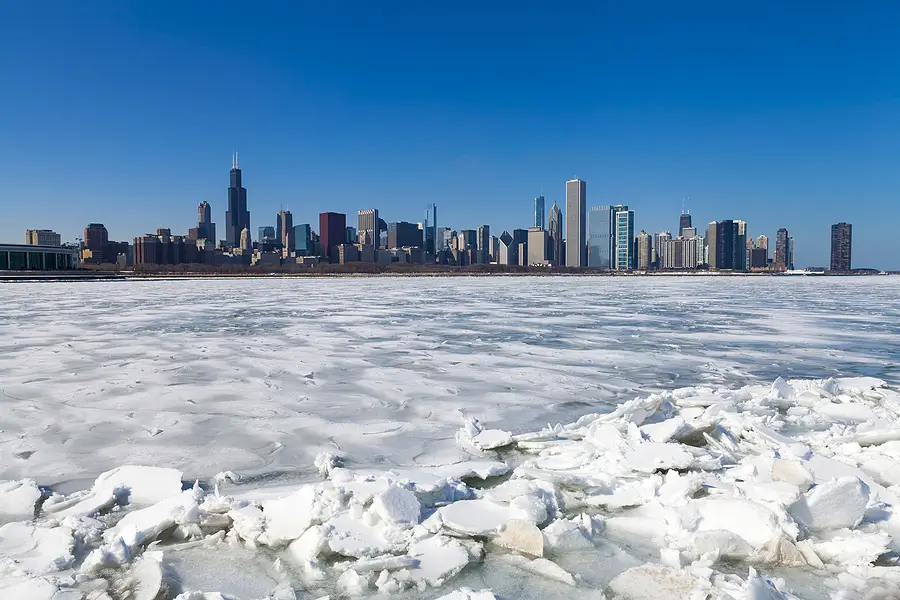
Author: Mark Ainely | Partner GC Realty & Development & Co-Host Straight Up Chicago Investor Podcast
During the pandemic years, evictions across the country saw a significant drop due to moratoriums during COVID-19. Chicago was no different, but in the last two years, things have started to change. As the pandemic cleared and moratoriums were lifted, evictions have steadily increased in Cook County.
The Cook County Sheriff released a 2023 eviction report that totaled 11,988 eviction orders in the county for the year. This was the highest total since 2019 and over 3,000 more than in 2022.
As we continue to see more evictions in the Chicago area heading into 2025, landlords like you and your property manager need to approach evictions with a prevention-based mindset and a full comprehension of state and local laws.
No landlord wants to serve an eviction notice, which couldn't be truer during the winter months we are about to enter into. Unfortunately, sometimes evicting tenants becomes a necessity to recoup your financial losses. But with colder temperatures and the holidays, many landlords question whether this is even possible.
The short answer is yes, you can evict tenants during the winter. However, there are exceptions and considerations for you to keep in mind as a responsible landlord. Let's take a look together at the eviction process in Chicago during the coldest time of year, and how you should handle it.
When to Evict Tenants During the Winter
Barring temporary moratoriums, there are no eviction laws that dictate what time of year you can evict a tenant. As long as the proper eviction process is followed, you can evict a tenant during the winter for reasons like unpaid rent or property damage.
However, there are exemptions to this in Cook County. While a court order can still be passed by a judge at any time, the Cook County Sheriff's Office will not carry out eviction enforcement during two specific times.
Exemptions from Evictions in Winter
Evictions will not be enforced if outdoor temperatures are 15° F or lower
Evictions will not be enforced during the holidays (Christmas and New Year's). These dates have varied in the past but are typically between December 19th and January 4th
Even if the eviction hearing ruled in your favor, law enforcement will not come out during these times to forcibly remove the tenant from the premises. For obvious reasons, nobody wants to kick a person out in freezing temperatures or on Christmas.
Keep this in mind during early December if you feel that pursuing an eviction lawsuit is your only course of action. It might delay your eviction notice but could be the time you need to peacefully resolve the issue and retain the tenant.
The Cook County Sheriff keeps a dedicated eviction page on their website to keep you informed on things like up-to-date eviction schedules and local updates for housing providers.
Considerations for Landlords in the Winter Months
So let's say it's December and you have a tenant who has refused to pay rent for multiple months. You decide to proceed forward with evicting them and things escalate to the courts. You receive a favorable ruling on your eviction court date, but at this point, Christmas has arrived. What happens next?
If an eviction cannot be carried out due to extreme weather or the holiday period, then the enforcement date will have to be rescheduled to the soonest possible date. If this happens, you will have to pay a rescheduling fee to the sheriff's office.
Eviction Protection
When the cold is hitting especially hard or late December is approaching, it could be an opportunity for you or your property manager to work to find a peaceful resolution. If a tenant owes rent and can't pay it due to the holidays, there is potential to keep a tenant by offering them a payment plan option or directing them towards a rental assistance program.
However, we understand there are some situations where eviction is the only option. In these cases, don't hold off on serving an eviction notice just because you're in the winter months and are afraid of delays. The potential for a rescheduling fee is much less of a risk than drawing out the eviction process even longer and losing even more on monthly rent payments.
Tenant Rights in Chicago
Tenants have certain rights during evictions stemming from federal, state, and local laws. Outside of just ethical reasons, these protections are also why it can be trickier to evict during the winter. These rights include:
Eviction Notices: Tenants have the right to receive a notice of the landlord’s intent to initiate eviction proceedings, which releases the landlord from any further payment of rent.
Property Removal: Landlords cannot remove a tenant's belongings from the rental property or change the locks. Only law enforcement can do this after an eviction order has been served.
Rights to Defense: Tenants who are being evicted have a right to defend themselves in court, including filing a written defense of their actions and why they should not be evicted.
Heat During Extreme Cold: When temperatures are extremely cold or pose a health risk to tenants, they have a right to warm shelter. Being thrown out in these conditions could be a hazard to their well-being, which is why law enforcement in Chicago will not carry out evictions during these conditions. Similarly, it is illegal to disconnect utilities if temperatures are forecasted to fall below 32°.
Failing to uphold any of these rights for your tenants can lead to serious legal consequences for you as the landlord.
Advice on Eviction Proceedings
The process of removing someone from your rental property isn't always as simple as serving an eviction notice and the tenant peacefully vacating the premises. Things can and often do escalate to the courts. If a tenant fails to respond to your notice, you'll need excellent legal advice and an experienced property management team to help you navigate through the ordeal.
Navigating the Eviction Process in Chicago
While evictions can be a little trickier in the winter months for Chicago landlords, it's important to be prepared to navigate them at any time of year. If you need aid in improving your tenant relations and avoiding evictions altogether, GC Realty & Development has you covered.
From missed rent payments to lease violations, we've seen it all in Chicago. We know what it takes to resolve these issues and handle evictions so you can worry less about the cash flow of your rental business.
To learn more about our services, give us a call today for a free consultation.

 Vendor Portal
Vendor Portal



